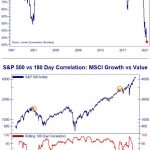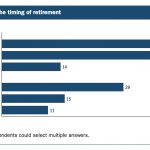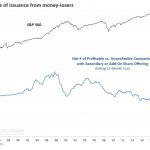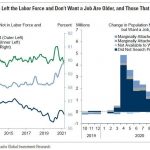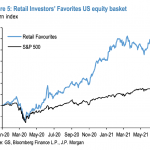UPFINA's Mission: The pursuit of truth in finance and economics to form an unbiased view of current events in order to understand human action, its causes and effects. Read about us and our mission here.
Reading Time: 5 minutes
In this article we are reviewing various career scenarios and how that could impact your decision making as it relates to budgeting and investing. While your career is often the most important component of your financial well-being, it can also be an aspect of your life that you have the least control over, especially if you do not own your own business.
There are three parts to being financially secure: investing your money smartly, budgeting correctly, and making a decent consistent income. Many financial articles will downplay the effect of earning a reliable salary from a high paying job because they want to be the ultimate guide to hack your financial situation into bliss and success. However, cutting corners anywhere in finance will not deliver the necessary results. You can squeeze the most happiness and success out of your life by spending frugally and making your money work for you, but let’s not ignore the fact that having a high paying job makes it easier to achieve your financial goals. However, it’s possible to be broke even if you make six or seven figures per year; that’s why any successful strategy involving finance has those 3 pillars. Breaking any of them makes it difficult to reach your financial goals.
High Paying Jobs
The great part about understanding how each pillar is important is that they impact one another, allowing for different actions to be taken with one based on the results of others. The most obvious example of adjusting the pillars is if you earn a comfortable living through a high paying job. This allows you the luxury to spend more, but it does not dissolve you of the responsibility to budget and invest appropriately. It also means your 6 month emergency savings need to be larger to accommodate your spending habits. While it may sound weird to save so much for an emergency if you have a lavish lifestyle because in theory you can reduce spending, in practice it may not be so easy to do that especially if you have high fixed costs such as a mortgage or a car payment. The more money you keep readily available and unencumbered (liquid), the lower the yield you’ll receive on your investment, but the greater your peace of mind will be in the event that something doesn’t go according to plan.
When it comes to investing, your strategy depends on your goals. The advantage of earning a comfortable salary is you’ll have the opportunity to invest solely in less risky securities and earn a lower investment return yet still potentially meet your long term goals. On the other hand, if you have sufficient savings as a result of great income, you have the opportunity to consider riskier investments with a small portion of your investment portfolio.
Risky Career
We’re looking at various career paths because your career is the decision you control the least. It’s easy to change your spending habits, improve your credit score, and alter the risk your take in your portfolio, but your career depends on your education, interests, and skills which aren’t as fluid. The next career option we’ll look at is a risky career. The risk taken in a career can alter your budgeting and investment philosophy. Risky careers can be in highly cyclical industries such as construction or oil fracking or they can be in firms which are seasonal or don’t have a long operating history. Working at startups or for your own business has higher risk because the business model might not be proven yet or not profitable. The advantages are freedom as they have less of a bureaucracy and bigger upside because you have more operational leverage with your decisions, and the opportunity to earn more value for your efforts as a function of being compensated with equity in the business.
Dealing with a risky career means you need to save more money in case of an emergency. The best way to calculate how much you should save is to calculate the expected return of your salary. You can calculate this by multiplying the success rate of startups in your industry by your pay. This is going to require you to save more money to compensate for the extra risk. You can do a sensitivity analysis to see how much you’ll need in different lengths of time spent unemployed.
For a cyclical industry, you can calculate the money you will make in a full cycle, assuming you are unemployed during the worst of the cycle. Averaging out the lean years and the strong years, gives you a cyclically adjusted budget. It doesn’t make sense for a worker in the energy sector to act as if his/her job is as secure as working for a healthcare services firm. The great part about this analysis is it’s easy. If you’ve had a long career, you can even assume similar cycle lengths and earnings changes.
Investing should balance out your career risk. There’s nothing wrong with owning equity in a firm you’re employed by, but its important to carefully examine potential pitfalls a company can face when you take equity as a portion of your salary. If you work in energy or construction, it’s very tempting to invest in what you know, but you want your portfolio to act uncorrelated with your earnings. One way to invest if you really want to make bets in the same industry is to do a pairs trade where you short (bet against) a firm in the industry that you know is a laggard and buy one you think is a winner. That potentially eliminates correlation risk with your earnings. Another way to use your industry knowledge to your advantage is knowing if you sector is dominating a certain part of the market, and avoid investing in companies associated with that sector. An investment not made can often be as good in terms of avoiding losses as a great investment that is successful.
Are You Passionate About Your Job?
One consideration most people don’t make when determining their budget and investments is whether their job is their passion. If your job is your passion you won’t want to retire early. This is why many people would work on job they are passionate about for less pay. Unfortunately, it’s not always feasible to work at a job you love. It’s easy to tell someone to work at the perfect job, but that’s not realistic for all readers based on their skill set and interests. If you have a tough job, think of your leisure expenses as an investment in your mental health. This means you can spend more money within reason to improve your quality of life. There’s no point in saving money if you aren’t enjoying the present.
Investing when you have a difficult job means you’ll want to have high investment returns so you can retire early. Retiring early could be for your mental health or it could be because physically demanding jobs can’t be done past a certain age. In this case, make sure to take risk in your portfolio when time is on your side. As a young worker in your 20s and 30s, taking more risk is okay because timing the business cycle is less relevant. You need to slowly lower your risk as you get older to avoid losing money right before you retire.
Have comments? Join the conversation on Twitter.
Disclaimer: The content on this site is for general informational and entertainment purposes only and should not be construed as financial advice. You agree that any decision you make will be based upon an independent investigation by a certified professional. Please read full disclaimer and privacy policy before reading any of our content.


